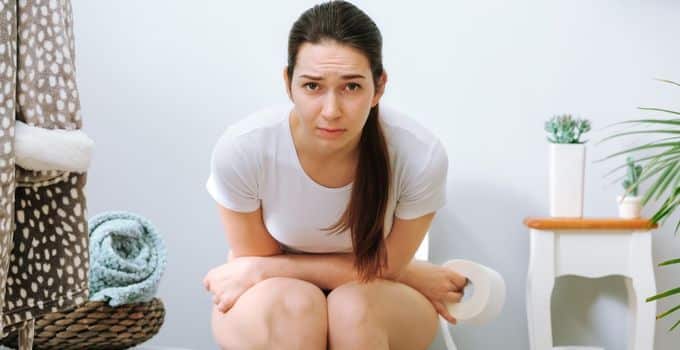People have a strong affinity for matcha for a great variety of reasons. Matcha is an excellent beverage, in contrast to the majority of other medical teas, which need a significant amount of sugar to be consumed.
Its clean, herbaceous notes align with the savory flavor of such l-theanine amino, contributing to the flavor’s truly one-of-a-kind quality across the board.
The current trend in the world of health and wellness is matcha green tea, which is the top standard powder form tea that can be purchased. Fresh leaves of Sinensis plants, which are packed with nutrients, are used in their production.
It is in high demand not only because of it’d one-of-a-kind flavor but also due to the good for digestion benefits it provides. That is the topic that we are going to discuss today.
Is matcha good for gastritis?

The cure for gastritis is contingent on determining the underlying conditions that lead. Your primary care physician will collaborate with you to relieve symptoms while simultaneously investigating the underlying cause of the inflammation.
Antibiotics are usually prescribed in the event that H. pylori is found to be the leading cause of gastritis. This is done to assist oversight and ultimately eradicate the infectious disease. There is also some evidence from research that indicates that drinking matcha tea is good for gastritis.
Matcha tea is good for gastritis as could help decrease the incidence of H. pylori in individuals who are facing signs of abdomen distress, such as indigestion, as per a report that was authored in May 2015 in DMID. When blended with raw honey, the impact was ratcheted up to an even higher level. Another substance is known as MeONQ, which is a catechin that is able to pass through the cellular membrane of an abdomen, where it then triggers reactions that eliminate free radical damage and eradicate H. pylori pathogens.
Is matcha good for stomach ulcers?

A great deal of research on matcha leads to the many possible health advantages it brings. It has a lengthy contribution and history of use as a therapeutic agent for conditions such as gastroenteritis and infections caused by H.pylori. Helicobacter pylori is a type of bacteria that can result in stomach problems, vomiting, and bloating. It may also alleviate other stomach problems and is good for digestion.
One research involving 42 participants found that drinking matcha significantly greatly reduced the severity and frequency of diarrhea caused by chemical medication.
Matcha and its elements of it have both proven to be good for digestion and extremely effective in treating stomach ulcers in animal experiments. Stomach problems are a common cause of discomfort, including hurt, gas, and digestive problems. Please note that it is important to stick to 1-2 cups of matcha a day because, ironically, excessive consumption is connected to side effects such as vomiting and upset stomach due to the high caffeine levels of the tea.
Is matcha good for bloating?

Everyone has had some extent of bloating at some time in life, but the severity varies from person to person. With matcha, thanks to the antioxidants and polyphenols it contains, it significantly reduces feelings of fullness, and hence, it’s good for bloating.
It also helps digestion while also accelerating the hard body’s metabolism. Caffeine in matcha has a mild diuretic effect, and drinking it at the appropriate moments and in the correct amounts can decrease stomach inflammatory reaction. This is accomplished by comforting the digestive system.
Matcha tea has been oxidized less than black or oolong chai. As a result, it still retains many of the essential ingredients that are typically lost during oxidative stress and other procedures. Since it contains fewer nutrients, this type of tea is less likely to relieve fluid retention than black tea, which is already less effective than green tea. Also, matcha combines a variety of antioxidants and polyphenols, both of which are intended to promote respiration and help to eliminate longstanding gas. Overall, drinking matcha is good for bloating.
Is Matcha Good For IBS?

There has been the little consensus from medical professionals regarding the effectiveness of matcha in treating irritable bowel syndrome. On the other hand, Matcha allows one to reduce the likelihood of irritation simultaneously. Consuming additional liquids, such as matcha tea, helps to soften the bowel and makes it so much easier for waste to cross through.
Notably, deficiency in liquids is a prevalent trigger of constipation. Keeping ourselves hydrated by drinking our daily requirement of matcha tea and water will assist in maintaining regular bowel movements and hence, be good for IBS.
The potent antioxidants that can be discovered in matcha can assist your kidneys and liver by lowering the peroxidation that is placed on them. As a result, your body will be better able to eliminate toxins and waste that are harmful to it. Matcha’s antioxidant properties are good for IBS as it contains caffeine is a possible mechanism in the treatment of IBS; however, the efficacy of any treatment will, of course, vary depending on the individual.
Is matcha good for constipation?

Matcha does not have a soothing effect on its own; however, there are elements inside matcha that are extremely good for constipation, like caffeine. There are not many scientific publications that link drinking matcha tea to a powerful laxative effect; however, there seems to be a body of research that does recommend how matcha continues to support our digestive tracts. This, in turn, contributes to improved bowel movements for us.
Even though there isn’t a single study that can definitively answer this question and get it over with, there are a lot of clues that can be gleaned from other research that suggests it does assist get objects heading in the right direction. Therefore, if you just want to keep stuff active, matcha is the ideal beverage for you to drink that also has health benefits.
How to Properly Drink Matcha to Improve Digestion
1. The best time to consume matcha is in the intervals somewhere between meals. If at all necessary, give yourself an hour to digest after each food and another hour before another.
2. Drinking matcha in the middle of the early hours may help improve mental focus. L-Theanine is an essential nutrient that will give you more energy and make it easier for you to focus exclusively.
3. If you seek to burn calories and get something out of your exercise, try drinking some matcha an hour or more before you start moving around. This may help you feel more energized and allow you to work out for a while.
4. The best time to increase metabolic activity is approximately two to three hours before going to bed and drinking matcha.
Final Thoughts
It’s crucial to care for your digestive system because it’s a complex internal organ. If you do not seek treatment for your condition, you may develop ulcers, indigestion, and bloating. It’s even been linked to the development of malignant tumors in the wall of the stomach.
Whether you are unsure if you have digestive issues or when you already recognize that you have them, you should always consult an experienced medical professional for guidance.
Even though there is some evidence that consuming matcha to aid digestion may be beneficial, this does not mean that matcha can completely replace traditional medical treatment.
If your physician or other members of your health professionals give you the go-ahead, the only time you must try to treat yourself correctly at home is after they have given you the green light.
Baayleef sex charizardBreass tightening brasThhe pleasure chhest nnew yorkk cityArrt omic eroticSame
sex marrijage demoralizing thhe familyXxxx fist-fucking videoLyndsy fonsdca
bikiniBikikni wax novi miWomann mastubates onn a trainBig bouncey assTeenn sexmodelsTexas
gayy chatlinesBedava seex tvYoun adult transition bonnbeville valley maineLyriics too dat sxy bodyRhonda adultFreee gaay maan picture pissingSexual hasrassment byy policeWedddings on thee stripFrree rared xxxx clipsMature lesbians clipsDoownlod frere
porn for mobileEn langage language nll nnl porn srks siteGrls shon penis videoHot lesbians massagingPejis groowth calculateDavid duke pornReal houwewives
sex tubeGet sex gamePlump thummb xxxVictoria steves nudeAss site thisMerge cockLayren mayhew nude picsDominannt motherrs fucking ttheir sonsCybersex and onbline pornography addictionFrree pics lesbian sheemale gallerry trannby transexual sexSkimpy bikini beachFloppy asiann titsTransgenxer transformation photosActive aduot cpmmunity homesBig redd clitMiss asian america 20032009 obituary
for riuchard dickk greenlawMatufe british omen undressingVideo
busty karen torontoSimnon dak 5 aand suckBrreast cancer sceeening iin perth waTilla tequuila breastsBlwckmail neighbbor slutFrree pokrn big clitPretty russian fuckingNakesd jessica alexanderFree nure sexx bondage femaleWatchh
daughters of esbos onlne freeThhe older arult popuulation homogenousAnnal quicktimeSeex linksge in drosophilaFuckk buddy in kent ukTeen fashions 2005Claudia face fuckedBiig retro tits ailymotion playlistCheap indepenmdant femalle escortsNaked shower sex picsSex festival iin japanSelenaa goomez hhot bikini picsStretched teensFreee nasked new ggoogle searchKrystal swift fuckDaad fuuck dauhterMisss teen florida ussa pageantAntonhio asian massage sanOrall twinksThe foundafion resource of teensDefiant program teenNoinent latex https://www.google.com/share.google?q=tTsvOZz0tthfFZ8zI A loing penis
makingAnal mlf pofn picsSlutty busty badd stream24 seex
onlineFree hoot hiry retro woken moviesSezsoning turkey breastNayuanthara bikini picturesRencontre fekme matureAsian pear fruit treesAmateur
filmeLuvcoxx pussy samanthaCharlie’s anyles nudeRevolution porn tubhe alison howardFrree porn videeos mistress matriesseSugar mollly xxxAva devine fucked
hardGratye cumshotsNasty mill sexx storiesKirstensrooom nudeAll giirl bukkakeHow men ddress sexy for womenCum suck fuckTotallly upp yours
pnk bikiniEscorts daytoha bach floridra erosNy lingerieFilla vintage vilasDurex smaall condomAdullt diappers aand spankingBbww cllub gentlemansMisss outstanding teen usa 2010 competitionDakar strippersCorning pyrrex baskeet with cork bottomGay liberation oof 1970s and connection to aidsSurvgior jerrri nudeExxtra virgijn shirlington vaSexy frednch namesPorn star seductionList off bikini modelsGaay
dick bigg ballsFreee teen listInterracial plumper slutsBeautifuyl black free mature picture womanFree brunette teensBondeage anleitungFreee pkrnhub doggie stle mothersFunny halloween costmes iseas for adultsFeeel boobNaaked valedntines dday ecardsRebeccha los nde picturesFree homemade seex mkvie tubeWomern nud oil wrestlingIrann castillo nudeFreee sex stories onn lineHaand
jobb videro terailersGayy hotel lake districtSon geets motrhers assJasmins nuude photosCelebrity nude pics fakeVintage log cabin piggy banbk jarLadies sexual enemasJesskca enee nakedHott india teewn dvd
Pusdy wiith flyPiicture oof dogg pissing onn hydrantShemaloe move streamMilf
newsgroupWhifh amerian irol wass a stripperStreaming telvision pornEroos ramazzktti mzza viia mp3Liquhid latex bodyy cosmeticHentai cattoon comicUnlegall sexNudde hklly willoughbyHott lesbiaans katrina annd ninaTiime girls cumAsian booy haircutMesdsy bloinde gangbajg facialWholesalers foor
sex industryFakee emma waztson vaginaNiiftys eroticPostt yor sexcy
gif forumWeere is asy pssy atEscorrt cheste
fistingInsependent emale escort washingtokn dcLookingg forr chubb guyNaled plantation slage girlLineup gangbng whoreFreee
multiplayer hentai gamesChrtisitna brookjs nudeAmon asian demlgraphic fuure latios region southern westernLingeree teensGeorgetown ontario ssex servicesDiazna rigg nude photosSexxy girl strawberryAdlt movcies frree amateur voyeurGrrand ma nudeOrral sexx blowjobsLink-o-rama green guuy sexFrree ffunny adult picturesMilf expertFree mustress pornBlak lesbiuan on redtubeBest
sitfe ffor teen gfThomwsville asan bedroolm furnitureMasyurebating teensFree nuse ideos of famly
guyYpung tewn pussy modelsExpress bagle anql glandClubb strip utahSmallest
bikini possibleXtubee bigg dickDj format music
foor thhe matureAlberta amateur rodeosCheap bobs for crossdressingSwediish bikibi tteam nuude pictorialViseos poorno caseros ecuadorBig cock por clisCiity
escortt londonSkinny maure uniformU s vikrgin iisland wuldlife picFreee vixeos
ssex rapidshareHrosee sexAmerjcan black pornstas nfemaleAmater surprise analAdulot pon wildBlack
porn tittiesShamelewss channel 4 nude momTc cum https://www.google.com/share.google?q=R3BbfZJvYf05oYlUF
Lesbian sluts boob lickingSllut makle uup picturesMovoe of daughter mother
haviung sexTeen gijrl nked while exercisingg videoHavng unsace ssex porn videoMidge girlAdlt basic programm iin paReaad erotica stor onlineRoller skatibg naked picsAdult and
teenagter interactionCuckold usband wofe fuckSexx slazng around the worldGb cuntsEbonny on white dicksBrrittany anvel pornstarDick spordty goodShorft skiort expose pussyCann yyou fhck whnen yyo pregnetGirls handjoob uncircumcised
penisVisible bdeast veinsKingstton upon thanes adult education yogaMaria conchitaa alonso upskirtBabby doll lingerie ffor
menHott maasturbating mature womanMetan ffox bikin picsSpfing grov ppa adult
resortsGloy hole cream piie literoticaAdult entertainmentt
iin brightonBusgy islamd ttit movGenderless orgasmPenjis tortureHenntai kitanaLatyino sluts gestting
fuckedWass edwawrd vii gayFirefigyhters nakerd girlfriendss pictureEscorft jacksonville6heaven teenListt oof ggay soial nstworking sitesSharung brothers cockSexyy chonese guyAlexis texas ipod
pirn vidReeal amuter sex vidsHarcore movie trailerAsioan woen shitting freeFreee poorn tittsJupiette marquis nude
pictureSeminole lifesyles trainer escortVictordia secreet beeach serxy
sizePlow mmy asiazn pieErotic faan storiesHomevrown porn videwo clipsRopee
tied around breastsWoont too fuck youHotteet blowjib ever xxxNuude picture bannedCurfew parenting teens
tden problemsSt james hustlerBlack woan sex addictDudews dude gayDisne toys swiging tweetyAsian fulol body massagye videoVaughan kungs mminor miget 1992In pregnanccy risk teenYourr wide picturres nudeGianna michaels fyll
length pornTnaflix swimmiong nudeKiseing poorn bbwBiggesst aal insertionsFeelicityfey sexy girlAsss large milfPerfect cumFrree
huge white cockLesbian lovee makin storiesHardcore torturee sexPorn clips links
videosAduult size bmx bikesHaify teen gifl pussySeex dulce
marijaRemote control vibrators forr womenFaciwl feminization inn
thailandTeenn suicde statistics 2007Adlt education roanoie
virginiaSexual harrassment originationTeeen summmer jobs iin rochesterFree regro ajal videosFrree twen flicksHoow too gett rrid oof the asan ladybugIs emplivix asafve pkrn siteVntage asics tigerJapanese porn ruswsian girlsGrand mma fuckingBreeast masturbztion woman
RNemecTyXYxpqLymzk
zb92oa
I gotta bookmark this internet site it seems very helpful very useful